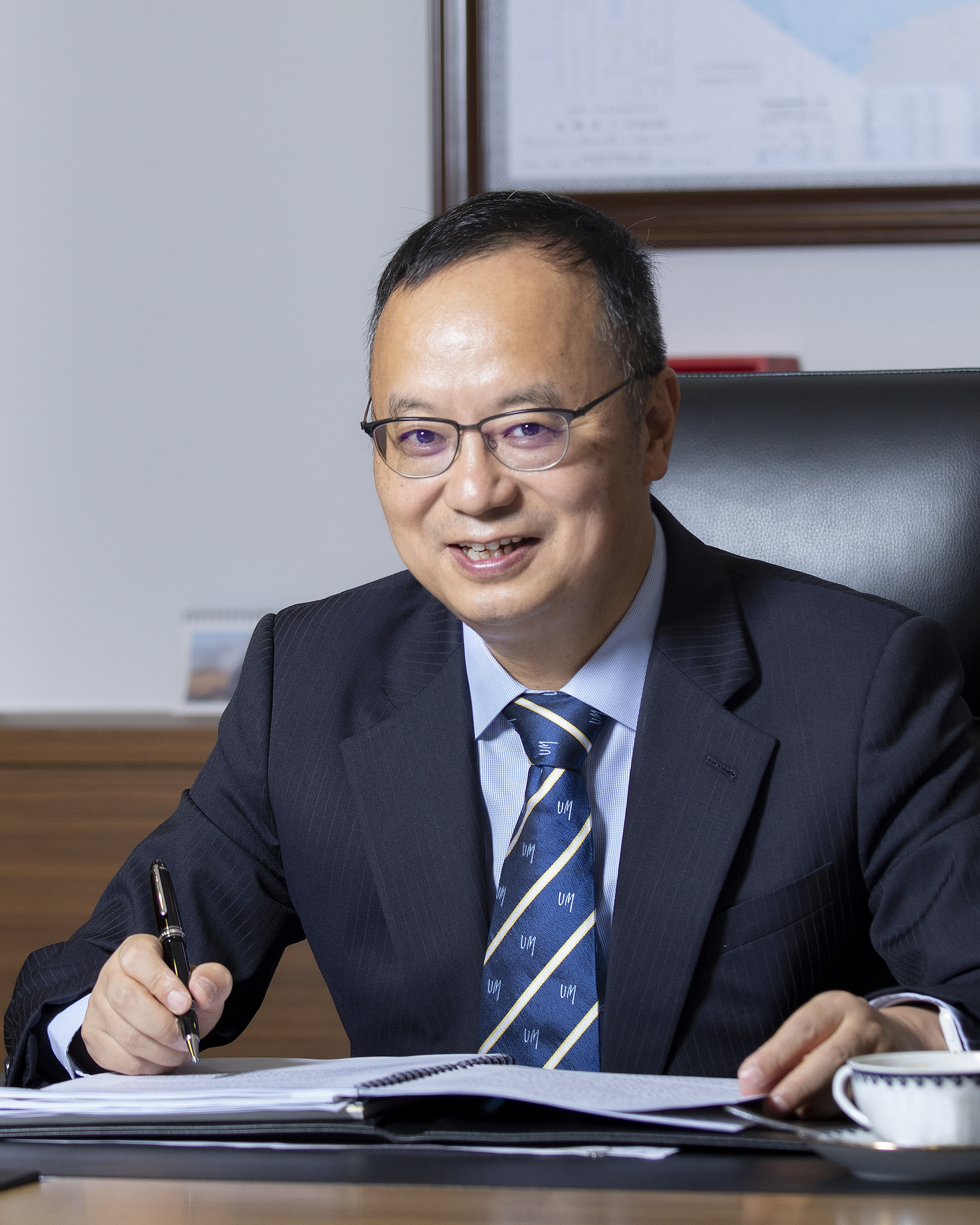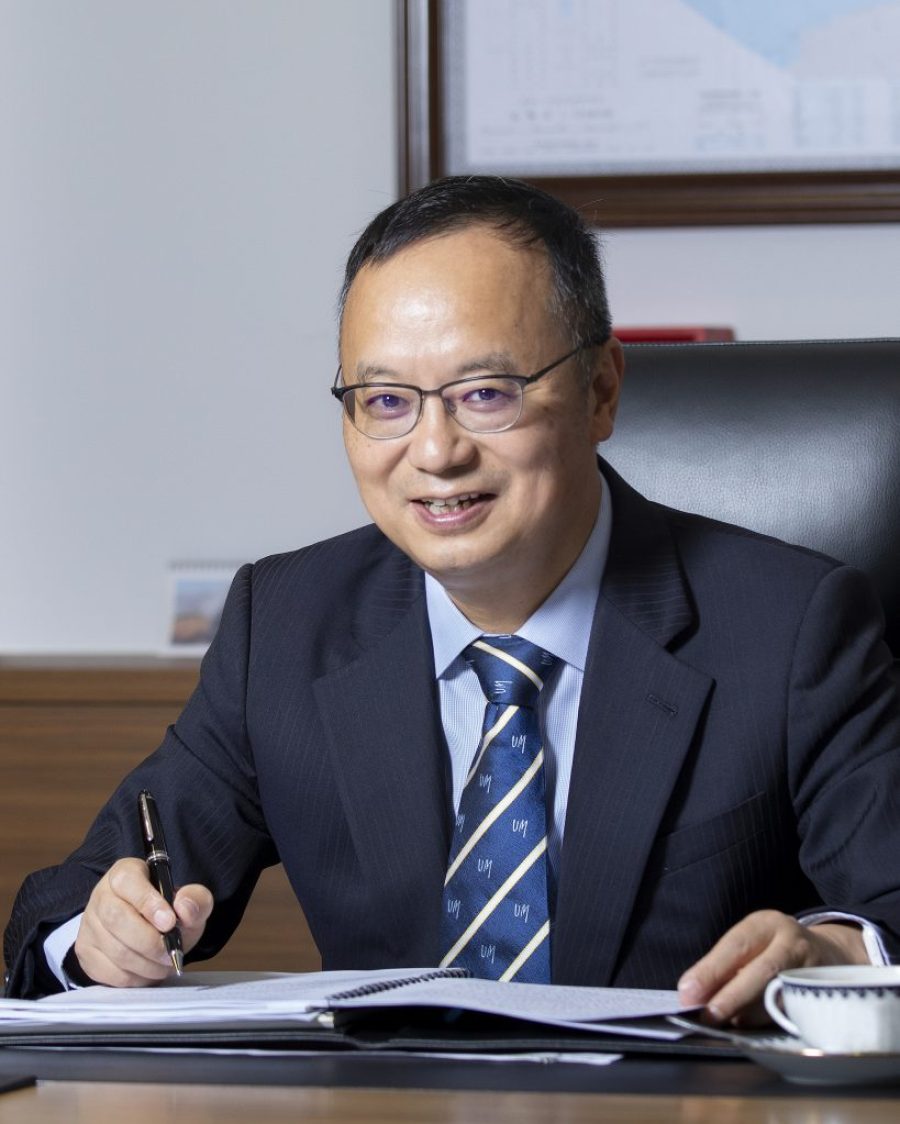The University of Macau (UM) is determined to take the lead in higher education and research in the western Pearl River Delta, university Rector Song Yonghua said during a one-on-one interview with China Daily.
The leadership role is one the university must take to contribute to the development of the Guangdong-Hong Kong-Macao Greater Bay Area, which comprises 11 cities along the Pearl River, he said.
“In the east bank (of the Pearl River), we have Guangzhou, Shenzhen and Hong Kong — three of the four core cities of the Bay Area. The universities, the higher education resources and the companies there are strong,” Song said.
Of the six Bay Area cities mainly on the west bank of the Pearl River, Macao is the only Bay Area core city.
The University of Macau enjoys a strategically important status and advantage among universities on the west bank, so the school should take as its mission leading the higher education and research corporations on the west bank of the Pearl River, Song said.
The UM is the only public comprehensive university in the special administrative region. It ranks among the top 400 universities in the world and No 47 in Asia according to the Times Higher Education World University Rankings. Three state key laboratories are established inside the university, focusing on microelectronics, Chinese medicine and the internet of things for smart cities.
The university has already taken the first step to achieve its goal. In August, the UM initiated the Alliance for Technological Innovation and Talent Development in the Bay Area. The university plays the role of president in the alliance.
Jointly established with Beijing Normal University-Hong Kong Baptist University United International College in Zhuhai and Wuyi University in Jiangmen, the alliance has so far been joined by 17 universities and colleges on the west bank of the Pearl River.
“It is the university’s efforts to grasp the opportunities brought about by the development of the Bay Area and to support the SAR government’s strategic plan,” Song said during the alliance inauguration ceremony on Aug 19.
Song said the alliance will prioritize several areas that will benefit the economy and people’s livelihood on the west bank, such as data science for smart cities, and advanced manufacturing and robotics.
By taking a lead role in the alliance, UM will attract high-quality global education and research resources via its established ties to propel higher education and industry-academia collaboration in the western Bay Area. Meanwhile, it will also work with different Bay Area education parties to integrate teaching and research resources in the region, Song added.
‘One country, two systems’
Whenever UM is brought up in a conversation, the change in its size will be a talking point.
Establishing in 1981, the university was originally situated on Macao’s Taipa Village, covering only 5.4 hectares. In 2014, UM has expanded to 20 times its original campus size as it moved to a leased site on Zhuhai’s Hengqin Island.
Covering 1.09 square kilometres, UM’s Hengqin campus enables the university to accommodate at least 15,000 students, larger than its original student capacity of under 10,000.
The Macao SAR government is authorized by the Standing Committee of the National People’s Congress to exercise jurisdiction over UM’s new campus on land that is part of the Chinese mainland.
“UM will not achieve new development heights with its original size, and it is difficult to find a plot of land as large as the Hengqin one in Macao,” said Song, attributing the reason for UM’s promising prospect to the “one country, two systems” principle, by which the SAR is governed.
“If there were no ‘one country, two systems’, UM would not be able to lease land from the Chinese mainland with the Macao SAR government’s jurisdiction over it,” Song said.
UM’s Hengqin campus is therefore hailed by many as a successful example of the practice of the “one country, two systems” principle. But in Song’s view, the new campus is more than just a successful example.
“It is an innovative practice of the principle. It expands the principle’s connotation,” he said.
Ambitious in new era
On the 20th anniversary of Macao’s return to the motherland, Song said his university is ambitious to become a world-leading university and making a greater contribution to the nation’s overall development.
“As the SAR’s only public university, we are committed to serving the Macao SAR government’s development strategy in building the city as ‘one platform, one centre and one base’ for the nation,” Song said.
Under the Guangdong-Hong Kong-Macao Greater Bay Area development plan, Macao is expected to become an economic and trade cooperation platform for China and Portuguese-speaking countries, a world centre for tourism and leisure, and a multicultural base, with Chinese culture being the mainstream.
According to Song, the university will continue to expand its student capacity, including enrolling more from the Bay Area cities. Moreover, the university will also be more proactive in technology transfers, helping its students turn dreams into reality in the Bay Area. Currently, there are over 30 startups that have been established by UM students and faculty members.
Song also expressed his best wishes for the Macao SAR. He hoped the new SAR government, which will take office on Friday, will continue the efforts to diversify Macao’s economy.
“That, in return, will create more job opportunities for our graduates,” Song said.






